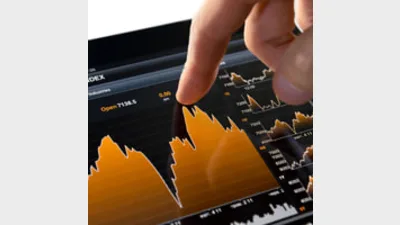Australia worst of G10 currencies: HSBC



The Australian dollar presents the least appealing investment opportunity of any of the G10 currencies this year, according to an HSBC report.
The report was produced assuming that the euro would not break up and no countries would leave the euro. This belief was based on factors including a strong political will to make the euro a long-term success and a likelihood for the euro to continue showing resilience due to its strong external position, according to HSBC.
The Australian dollar was rated the worst of the G10 currencies because it is strongly overvalued, and will likely average well below parity against the US dollar in 2012, according to HSBC. Global risks and slowing growth in Australia's Asian trading partners also recently resulted in easing policy, with further rate cuts likely.
The currency has also been strongly correlated with the "risk on-risk off" factor for some time, and once the eurozone news flow begins to stabilise the "risk off" dynamics will push the Australian dollar lower, HSBC stated.
The Norwegian Krone was one of the best rated G10 currencies. It is regarded as a true safe haven due to factors including "a large current account surplus, a low sovereign risk profile, and a budgetary position which is second to none."
The Canadian dollar was also preferred as the best option when taking liquidity constraints into consideration. Although it is trading near fair value, it has a strong fiscal position and a stable financial system, with twice the turnover of the Swedish Krona, HSBC stated.
In Asia HSBC favoured China, Singapore and Malaysia while avoiding India and Indonesia. Columbia and Brazil provided the best opportunities in Latin America, with Argentina and Chile at the other end of the scale. In emerging Europe HSBC preferred Turkey and Hungary but avoided the Czech koruna.
Recommended for you
The central bank has released its decision on the official cash rate following its November monetary policy meeting.
ASIC has cancelled the AFSL of a Melbourne-based managed investment scheme operator over a failure to pay industry levies and meet its statutory audit and financial reporting lodgement obligations.
Melbourne advice firm Hewison Private Wealth has marked four decades of service after making its start in 1985 as a “truly independent advice business” in a largely product-led market.
HLB Mann Judd Perth has announced its acquisition of a WA business advisory firm, growing its presence in the region, along with 10 appointments across the firm’s national network.











